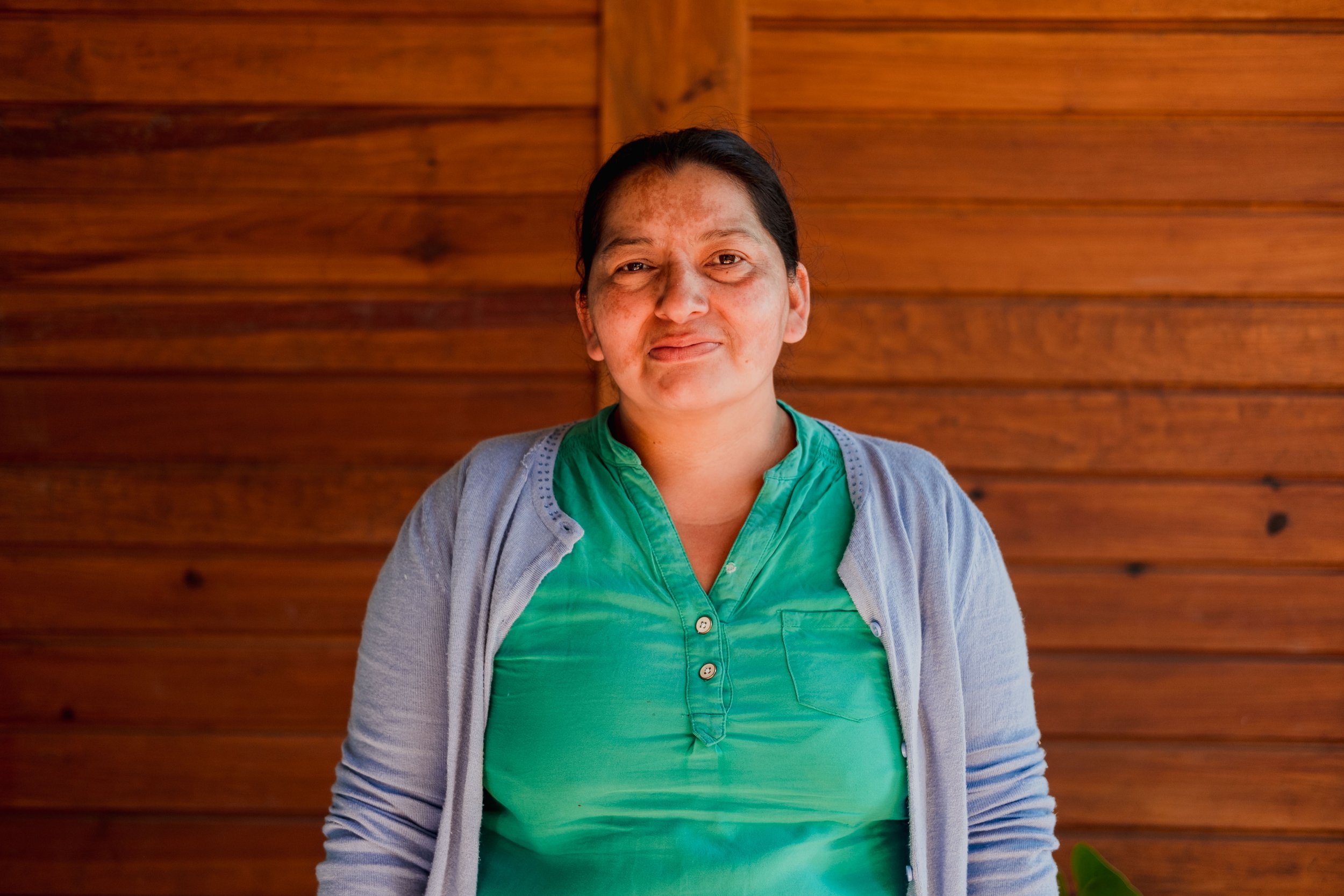We have a lot of really exciting updates this year with Catracha Coffee Company in Santa Elena, Honduras, so before I get ahead of myself and spill all the beans (pun intended), I’ll begin with the first seeds that started it all: coffee from Maria Adela Nolasco. We’ve been purchasing Adela’s coffee since our first year of working with Catracha Coffee Company in 2016, purchasing all four bags she produced that year. Her production has slowly increased since 2017, going up to five bags in 2018, seven in 2019, eight in 2020, and now ten bags in 2021! With guidance from Catracha, she’s been able to improve her wet mill by resurfacing her fermentation tank, and adding a washing channel which helps lower the risk of coffee damage. She also resurfaced her patio and added a raised bed to dry coffee, and purchased a motor to run the coffee depulper. Over the last few years, she has put more effort into managing her farm by diligently tending to her trees and using natural fungicide to protect her plants from leaf rust. Her farm now serves as a model farm for other farmers of Catracha looking to improve their own farms.
Portrait of Maria Adela Nolasco. Photo by Nahún Rodríguez
As a result of her continued efforts, the quality of Adela’s coffee has also improved, and this year’s harvest is noticeably brighter and sweeter. It has an acidity akin to white grape, and its sweetness and viscosity reminds us of maduros, or fried sweet plantains, and milk chocolate. In our brewing experiments, we’ve also picked up a smooth, silky finish that reminds us of creamy peanut butter!
In the past few years, we purchased additional Catracha coffee from Sulma Siomara Lopez. But this year, we decided to only commit to Adela’s coffee. Why is that? In truth, we loved Sulma’s coffee this year as well, but with both Adela and Sulma’s increased production, we weren’t able to commit to buying both of their lots. We could have purchased less of Adela’s coffee to be able to buy some of Sulma’s coffee, but then that would have left a smaller amount of their single origin lots that would have then needed to be sold. This can be challenging. Oftentimes, a few bags will be enough for a smaller roastery and will last them several months. As Andytown has continued to grow, we’ve needed to increase our green coffee purchases so that our customers have enough time to enjoy the coffee. We felt that committing to a full lot is better than committing to half, and we decided to proceed with Adela’s coffee because of our longer history and improvement of coffee quality. We’re confident in Sulma’s coffee and that another roastery will enjoy it as much as we did.
View of the sunset from Adela’s home and processing station. She uses the cement drying patio to sort cherries before loading it into the hopper of the mill on the right, where the cherries are depulped, then go into the canal with running water. The coffee is the soaked in water and left to ferment to remove the mucilage from the coffee, and is washed again before being left to dry in raised bed inside the parabolic drier. The plastic covering over the drying beds allows the green coffee to dry more slowly and evenly.
There are many factors that go into purchasing green coffee, and we’re constantly asking ourselves what are ways in which we can continue to make a real impact for coffee producers. Catracha has always advocated for coffee producers in Santa Elena and continues to work towards paying farmers more. Catracha makes two payments to producers: the first is when Catracha buys the coffee in Honduras, and the second is when the coffee is sold, in which Catracha shares their profits. This year, we’re working with Catracha on a BlockChain project that allows for increased transparency and implementing a third payment that will be split three ways between the producers, coffee pickers, and an emergency medical care response fund to help producers who are dealing with unexpected expenses from a medical emergency. We have more to share about this project and Andytown’s involvement in it, but for now, you can click on the QR Code to get an idea of what we’re working on:
Click on the button below to buy a bag of Adela’s Coffee!




